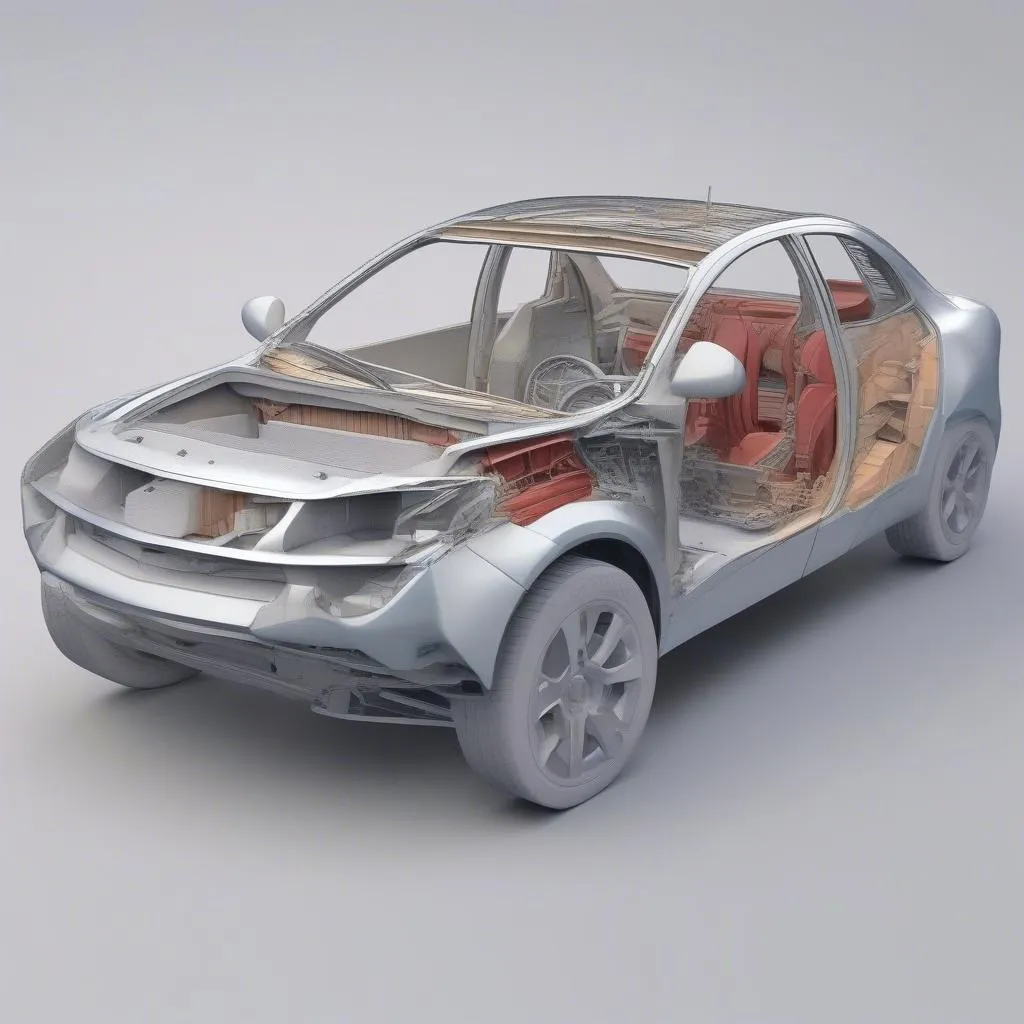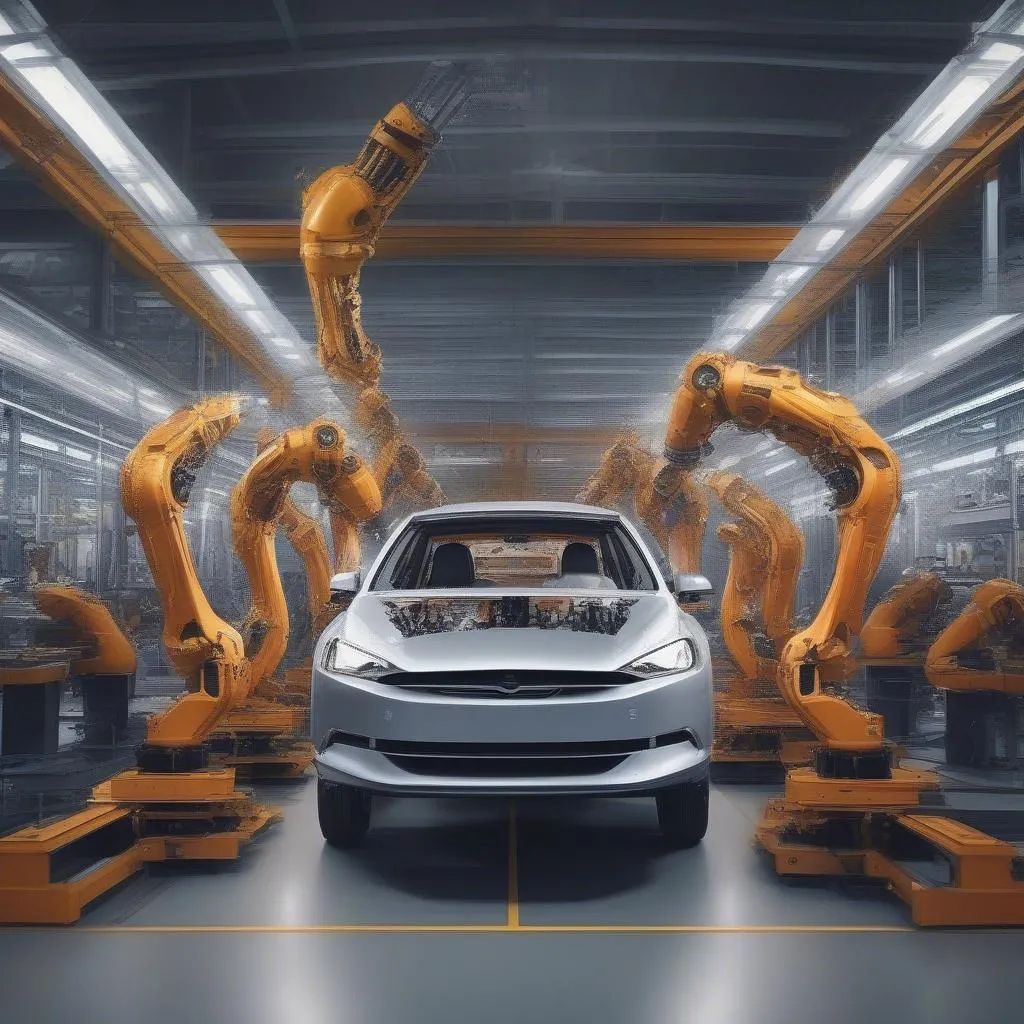Imagine this: You’re cruising down the Pacific Coast Highway in your sleek, silver Audi A4, the California sun warming your face. Suddenly, a rogue shopping cart from a nearby Trader Joe’s jumps the curb, leaving a nasty dent in your beloved car’s side. You’re fuming, but then a thought crosses your mind – what exactly is damaged? It’s more than just the paint; it’s the very skeleton of your car, the body shell, that’s taken a hit.
What Exactly is a Car’s Body Shell?
As a seasoned auto mechanic specializing in European car diagnostics at Tech Car USA, I often encounter confused faces when discussing the body shell. It’s a term that sounds straightforward, yet holds a surprising amount of complexity.
In essence, the body shell is the structural foundation of your vehicle, the core framework upon which everything else is built. Think of it as the skeleton beneath your skin – it provides shape, strength, and protection. This intricate network of metal components, typically made of high-strength steel or aluminum, is what allows your car to withstand the rigors of the road, from bumpy backroads in Montana to bustling city streets in New York City.
More than Meets the Eye: The Vital Role of a Car’s Body Shell
- Safety First: The body shell is your shield in a collision. Its carefully engineered crumple zones are designed to absorb impact energy, diverting it away from the passenger compartment and potentially saving lives.
- Strength and Rigidity: Ever wonder why your car doesn’t fold like an accordion when driving over a speed bump? You can thank the body shell’s inherent rigidity for maintaining structural integrity and ensuring a smooth, controlled ride.
- Aerodynamic Prowess: A well-designed body shell minimizes drag, contributing to fuel efficiency and a quieter ride. Remember that time you marveled at the fuel economy of your friend’s Toyota Prius on your road trip through Arizona? The body shell played a part in that!
- Platform for Everything: From the engine and transmission to the seats and dashboard, everything within your car mounts onto the body shell, highlighting its role as the backbone of your vehicle.
Demystifying Common Body Shell Questions
Now, let’s delve into some frequent questions I encounter at the garage:
1. “My mechanic mentioned ‘unibody construction.’ What does that even mean?”
Great question! Most modern cars, like your sporty BMW 3 Series, utilize a unibody (or monocoque) construction, where the body and frame are integrated into a single, super-strong unit. Think of it as a seamless, welded structure. This is in contrast to older vehicles that used a separate body-on-frame design.
2. “Is the body shell really that different between car models?”
Absolutely! Each car model boasts a unique body shell tailored to its size, intended use, and safety requirements. For instance, the robust body shell of a Jeep Wrangler, designed for off-road adventures in Moab, will differ significantly from the lightweight, aerodynamic frame of a Tesla Model S built for speed and efficiency on California highways.
3. “My car’s been in a fender bender. Can the body shell be repaired?”
The good news is that minor damage to the body shell can often be repaired by skilled technicians using specialized tools and techniques. However, severe damage, like a significant collision, might necessitate more complex repairs or even replacement of certain sections.
Beyond the Basics: Delving Deeper into the Body Shell
- Materials Matter: While steel remains a popular choice, manufacturers are increasingly incorporating lightweight materials like aluminum (think Audi A8) and even carbon fiber (like the exotic Lamborghini Aventador) to enhance fuel efficiency and performance.
- Manufacturing Marvel: Creating a body shell is an intricate process involving advanced robotics, laser welding, and meticulous quality control, all happening within the controlled environment of a modern car manufacturing plant.
- The Future is Now: The world of automotive body shells is constantly evolving, with innovations in materials, manufacturing techniques, and design pushing the boundaries of safety, efficiency, and performance.
 Car Body Shell Structure
Car Body Shell Structure
 Welding Car Body in Factory
Welding Car Body in Factory
Need Help Navigating the World of Car Diagnostics?
Understanding the intricacies of your car’s body shell is just one piece of the automotive puzzle. If you’re ever facing perplexing car troubles, especially with the complex electrical systems of European vehicles, don’t hesitate to reach out. Our team of expert mechanics at Tech Car USA is just a message away, ready to provide 24/7 support and help you get back on the road with confidence. Contact us via WhatsApp at +84767531508, and let’s get your car back in tip-top shape.
Remember, a well-maintained car is a happy car! And a happy car makes for a happy driver. Safe travels!
